Did you know that 93% of online experiences begin with a search engine? This staggering statistic highlights the importance of having a robust online presence. As a business owner, you understand the need to drive qualified traffic to your website and stay ahead of the competition.
To achieve this, you need to optimize your website for search engines, enhancing your online visibility and driving business growth. Effective SEO strategies combine technical expertise, content optimization, and strategic planning to achieve sustainable results.
By leveraging expert SEO techniques, you can transform your website’s performance in search engine results pages (SERPs) and directly impact your business growth.
Key Takeaways
- Enhance your website’s online visibility with expert SEO techniques.
- Drive qualified traffic to your website and stay ahead of the competition.
- Optimize your website for search engines to improve business growth.
- Combine technical expertise, content optimization, and strategic planning for sustainable results.
- Transform your website’s performance in search engine results pages (SERPs).
Understanding SEO Services and Their Impact on Your Business
With the majority of consumers turning to search engines to find products and services, SEO has become a vital component of any successful business strategy. As you navigate the complex world of digital marketing, understanding the role of SEO services in enhancing your online presence is crucial.
What Are SEO Services?
SEO services encompass a range of strategies and techniques designed to improve your website’s visibility on search engines. These services include keyword research, on-page optimization, and link building, all aimed at increasing your website’s ranking for relevant searches. By leveraging these services, you can drive more qualified traffic to your site, thereby enhancing your chances of converting visitors into customers.
Effective SEO is not just about improving your website’s position in search engine results pages (SERPs); it’s about creating a better user experience. This involves optimizing your site’s structure, content, and meta tags to make it more search engine-friendly and user-friendly.
Why Your Website Needs Professional SEO
Your website is often the first point of contact between your business and potential customers. Therefore, having a professionally optimized website is essential for making a good impression and standing out from the competition. Professional SEO services can help you achieve this by ensuring your website is technically sound, content-rich, and easily navigable.
Moreover, professional SEO involves staying up-to-date with the latest algorithm changes and best practices, ensuring your website remains competitive in an ever-evolving digital landscape.
The Real Business Impact of Effective SEO
Effective SEO translates directly into tangible business results, including increased leads, sales, and revenue. By improving your website’s visibility and driving more qualified traffic, SEO helps businesses achieve a significant return on investment (ROI). Unlike paid advertising, which stops generating results once the spending stops, SEO delivers compounding returns over time.
- Drives more qualified leads and sales
- Enhances brand authority and trust
- Provides insights into customer needs and behaviors
- Offers a competitive edge in the market
Common SEO Challenges Businesses Face
As you navigate the complex world of SEO, you’ll likely encounter several challenges that can impact your business’s online presence. With 25 years of refining our SEO process, we’ve seen firsthand the importance of adapting to the ever-changing landscape of search engine optimization.
One of the primary difficulties businesses face is developing and implementing a comprehensive SEO strategy. This involves understanding your target audience, conducting thorough keyword research, and creating high-quality, optimized content.
Lacking a Comprehensive SEO Strategy
A well-rounded SEO strategy is crucial for success, but many businesses struggle to create one. This can be due to a lack of SEO expertise or insufficient resources. A comprehensive strategy should include:
- Keyword research and analysis
- On-page optimization
- Content creation and marketing
- Technical SEO
- Link building and off-page optimization
Keeping Up with Algorithm Changes
Search engines like Google continually update their algorithms to improve search results. These changes can significantly impact your website’s visibility and ranking. To stay ahead, you need to be aware of the latest algorithm updates and adjust your SEO strategy accordingly.
Continual improvement is key in SEO. Our ROCKET SEO process is designed to help businesses adapt to these changes and maintain their online presence.
Balancing In-House vs. Outsourced SEO
Another challenge businesses face is deciding whether to handle SEO in-house or outsource it to a professional SEO services company. Both approaches have their pros and cons.
In-house teams offer deep knowledge of your business but may lack specialized SEO expertise. Outsourced SEO services provide access to diverse skill sets but may require more communication and alignment efforts.
The right balance depends on your business size, goals, budget, and existing marketing infrastructure. Clear communication and performance measurement are essential for success, regardless of whether you choose in-house, outsourced, or a hybrid approach.
The Four Types of Services SEO
Effective SEO involves a combination of strategies, and understanding the four main types of SEO services can help you make informed decisions for your business. These services are designed to improve your website’s visibility, drive more traffic, and increase your online presence.
On-Page SEO: Optimizing Your Website Content
On-page SEO refers to the process of optimizing elements on your website to improve its search engine rankings. This includes keyword research to identify relevant terms, meta tags optimization to help search engines understand your content, and creating high-quality, engaging content that adds value to your users. By focusing on these areas, you can enhance your website’s visibility and make it more search engine friendly.
Other crucial on-page SEO elements include optimizing header tags (H1, H2, H3, etc.) for structure and readability, using descriptive URLs that include target keywords, and ensuring your content is mobile-friendly and loads quickly. These factors not only improve user experience but also contribute to better search engine rankings.
Off-Page SEO: Building Authority Through Backlinks
Off-page SEO involves activities that take place outside of your website but significantly impact your search engine rankings. The primary focus of off-page SEO is building high-quality backlinks from authoritative sites, which signal to search engines that your content is valuable and trustworthy. Strategies for off-page SEO include guest blogging, social media marketing, and online reputation management.
Guest blogging allows you to create content for other reputable websites, including a link back to your site. Social media marketing helps increase your online presence and can drive traffic to your website. Meanwhile, online reputation management involves monitoring and managing your brand’s online presence to ensure it’s perceived positively.
Technical SEO: Enhancing Your Website’s Foundation
Technical SEO is about optimizing your website’s technical aspects to improve its visibility and ranking on search engines. This includes ensuring your site has a secure protocol (HTTPS), is mobile-friendly, and has a fast loading speed. Technical SEO also involves XML sitemap optimization, robots.txt file management, and ensuring your site is free from technical errors that could hinder search engine crawling and indexing.
By focusing on technical SEO, you can improve your website’s crawlability, indexability, and overall performance, making it more likely to rank higher in search results.
Local SEO: Targeting Your Geographic Market
Local SEO is a subset of SEO that focuses on optimizing your online presence to attract more local customers. It’s particularly crucial for businesses with a physical location or those that serve a specific geographic area. Local SEO involves optimizing your Google Business Profile, building local citations, managing online reviews, and creating location-specific content.
The goal of local SEO is to increase your visibility in local search results, including the Google Local Pack and Maps. By combining traditional SEO tactics with location-specific strategies, you can effectively target and capture customers in your service area. Mobile optimization is also critical for local SEO, as many local searches occur on mobile devices.
14 Essential SEO Services to Boost Your Online Presence
Elevating your online presence begins with understanding the essential SEO services that drive results. In the ever-evolving digital landscape, a robust SEO strategy is crucial for businesses aiming to enhance their website’s visibility and drive more qualified leads.
Foundational SEO Services
Foundational SEO services lay the groundwork for a successful SEO strategy. These services are critical in ensuring that your website is optimized for search engines and provides a solid foundation for further SEO efforts.
Keyword Research
Keyword research is the process of identifying the most relevant and high-volume search terms related to your business. This service helps you understand what your target audience is searching for and how to tailor your content to meet their needs.

Technical SEO Audit
A technical SEO audit involves a comprehensive analysis of your website’s technical aspects to identify areas for improvement. This service ensures that your website is crawlable, indexable, and provides a good user experience.

On-Page Setup
On-page setup involves optimizing individual web pages to rank higher in search engines. This includes optimizing meta tags, titles, descriptions, and content to make it more search engine friendly.

Competitor Analysis
Competitor analysis is the process of analyzing your competitors’ strengths and weaknesses to identify opportunities for your business. This service helps you understand the competitive landscape and develop a strategy to outrank your competitors.
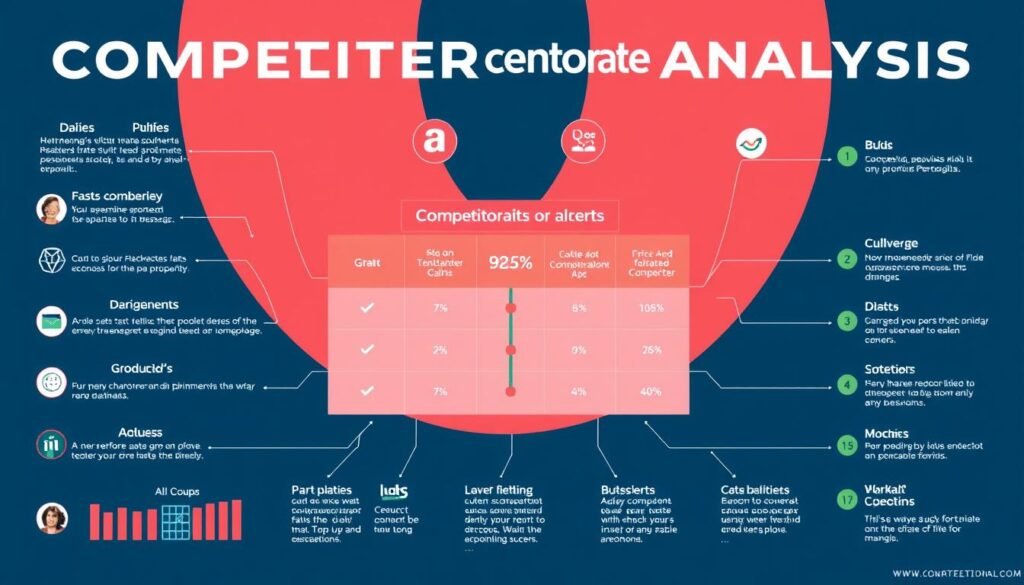
Off-Page SEO Services
Off-page SEO services focus on building your website’s authority and reputation by acquiring high-quality backlinks from other reputable websites.
Link Audit and Building
A link audit and building service involves analyzing your website’s backlink profile and acquiring new, high-quality backlinks to improve your website’s authority.

Linkable Asset Creation
Linkable asset creation involves creating high-quality, relevant content that attracts links from other websites. This service helps you develop a content strategy that drives links and improves your website’s authority.

Guest Blogging
Guest blogging involves writing and publishing content on other reputable websites to build backlinks and increase your online presence.

Content Marketing
Content marketing is a strategic approach to creating and distributing valuable, relevant content to attract and retain a clearly defined audience. This service helps you develop a content strategy that drives engagement and conversions.
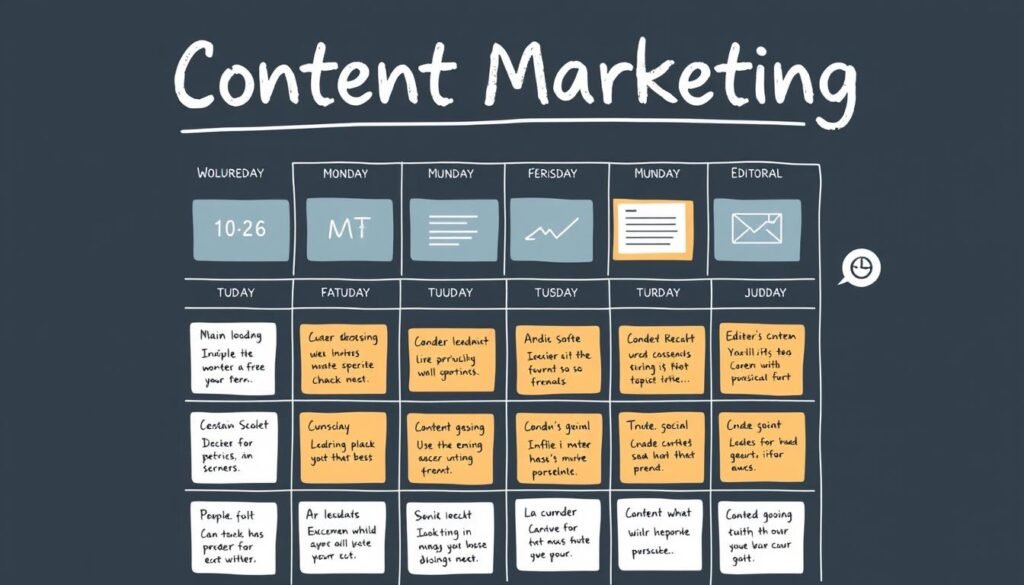
Local SEO Services
Local SEO services are designed to help businesses target their local audience and improve their visibility in local search results.
Citation Building
Citation building involves creating and optimizing online citations to improve your business’s local search visibility.

Review Management
Review management involves monitoring and managing online reviews to improve your business’s reputation and local search visibility.

Google Business Profile Optimization
Google Business Profile optimization involves optimizing your Google Business Profile to improve your local search visibility and provide customers with accurate information.
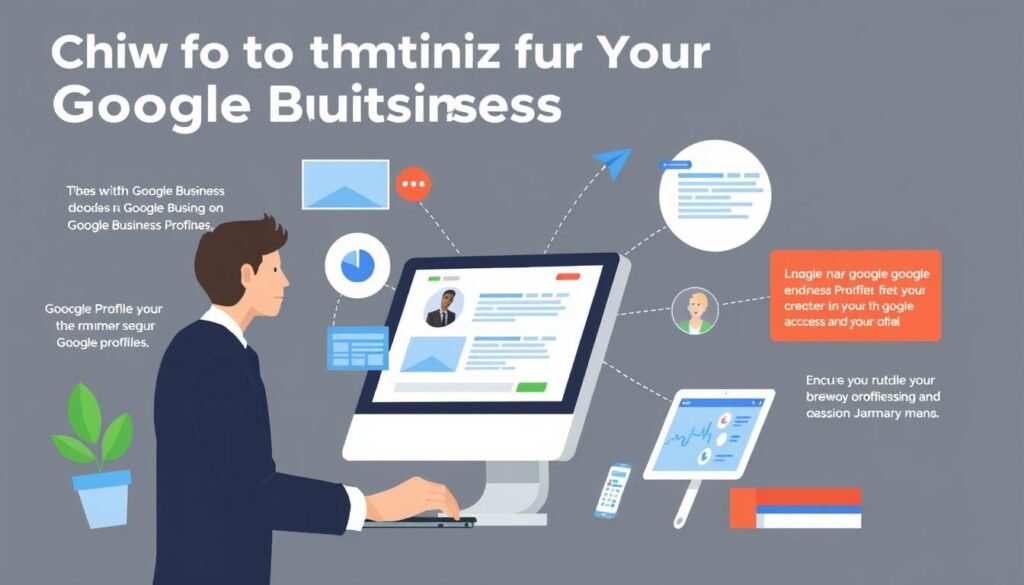
Barnacle SEO
Barnacle SEO is a strategy that involves optimizing your presence on high-ranking third-party platforms to gain visibility for competitive keywords. By leveraging the domain authority of established platforms, you can improve your online presence and drive more qualified leads.

The ROCKET SEO Process: A Proven Approach to Success
The ROCKET SEO Process is a comprehensive approach designed to elevate your website’s visibility and drive meaningful results. This structured methodology encompasses several critical phases, each playing a vital role in enhancing your SEO strategy.
Research: Understanding Your Business and Industry
The first step in the ROCKET SEO Process is Research. This involves gaining a deep understanding of your business, industry, and target audience. By doing so, we can identify opportunities and challenges that inform our SEO strategy.
Optimize: Implementing On-Page, Off-Page, and Technical SEO
The Optimize phase focuses on implementing on-page, off-page, and technical SEO techniques. This includes optimizing your website’s content, structure, and backlink profile to improve search engine rankings and drive more traffic to your site.
Content: Creating Valuable Resources for Your Audience
Content creation is a crucial aspect of the ROCKET SEO Process. By developing high-quality, relevant content, we can attract and engage your target audience, ultimately driving conversions and revenue.
The Keywords phase involves identifying and targeting the most relevant search terms for your business. This ensures that your content is optimized for the keywords that matter most to your audience.
Earned Media: Building Your Backlink Profile
Earned Media refers to the process of building high-quality backlinks from authoritative sources. This not only enhances your website’s credibility but also improves its visibility in search engine results.
Testing: Continuous Improvement for Better Results
The final phase, Testing, is an ongoing process that involves experimenting with different SEO approaches to identify what works best for your specific situation. Effective testing involves forming hypotheses, implementing changes, measuring results, and applying insights to future strategies. It’s essential to test various aspects of SEO, including content formats, page layouts, and call-to-action placements, to refine your strategy based on actual performance data.
By adopting the ROCKET SEO Process, you can ensure that your SEO strategy is comprehensive, data-driven, and continually improving. This approach enables you to stay ahead of the competition and achieve your online goals.
What to Expect from Professional SEO Services
When you invest in professional SEO services, you can expect a comprehensive approach that transforms your online presence. A dedicated team will work closely with you to understand your business goals and develop a tailored strategy to achieve them.
Dedicated SEO Team Structure
A professional SEO service typically includes a dedicated team with a structured approach to managing your campaign. This team may consist of SEO specialists, content creators, and analysts working together to optimize your website and improve your search engine rankings.
The team’s expertise ensures that your SEO strategy is executed effectively, with each member bringing their unique skills to the table.
Custom SEO Strategy Development
A one-size-fits-all approach doesn’t work in SEO. Instead, a custom strategy is developed based on your business needs, industry trends, and target audience. This involves thorough research and analysis to identify opportunities and challenges.
- Keyword research to identify relevant search terms
- Technical SEO audits to improve website performance
- Content optimization to enhance user experience and search engine rankings
Transparent Deliverables and Reporting
Transparent reporting is crucial for understanding the effectiveness of your SEO strategy. Regular reports should provide insights into key metrics such as keyword rankings, organic traffic, and conversion rates.
Comprehensive reporting allows you to track the progress of your SEO campaigns and make informed decisions about future strategies.
Technology and Tools Included
Professional SEO services often include access to premium tools and technologies that might be cost-prohibitive for individual businesses. These tools can include keyword research platforms, technical audit software, rank tracking systems, and analytics dashboards.
By leveraging these advanced tools, SEO professionals can gather deeper insights and more accurate data, providing a competitive edge. The integration of these technologies into your SEO strategy ensures a comprehensive analysis of your online presence.
Some of the key benefits of using these tools include:
- Enhanced data accuracy for better decision-making
- Comprehensive analysis through integrated technology stacks
- Ongoing value through historical data and performance tracking
Moreover, the right technology should complement human expertise, informing strategy rather than dictating it. It’s also important that technology training and support are included to help you understand and leverage the tools provided.
Measuring SEO Success: Key Metrics and ROI
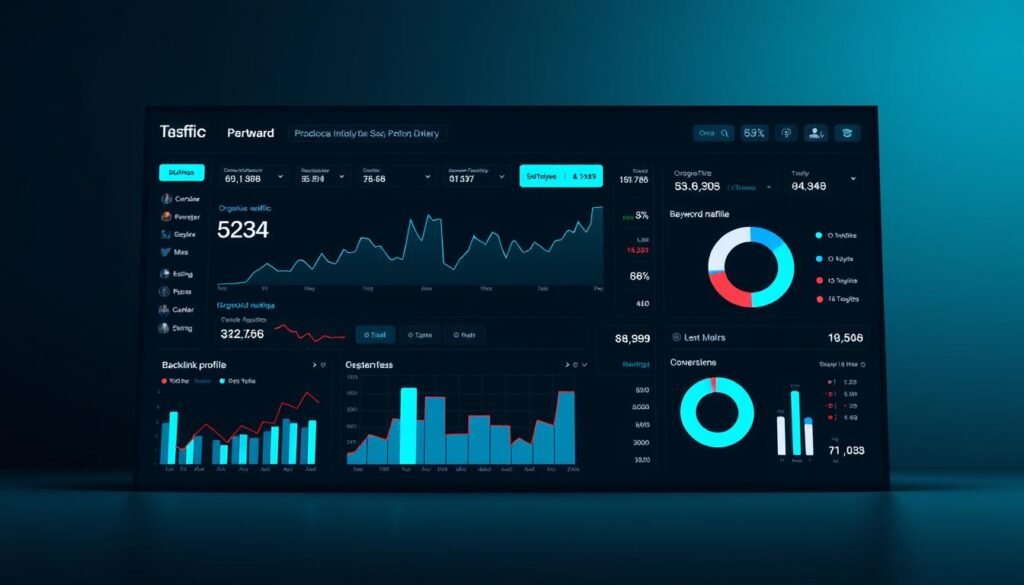
Measuring SEO success is not just about tracking rankings; it’s about analyzing the data that drives business results. As the saying goes, “SEO marketing that improves rankings is great. But sales, leads, and phone calls pay the bills.” To truly understand the impact of your SEO efforts, you need to look beyond just search engine rankings and focus on the metrics that matter most to your business.
Tracking Rankings and Visibility
While not the only metric, tracking your website’s rankings for target keywords is a fundamental aspect of SEO. This involves monitoring your position in search engine results pages (SERPs) and understanding how visibility changes over time. Tools like Google Search Console can provide valuable insights into your website’s performance in search results.
Key metrics to track include: average position, impressions, and clicks. By analyzing these metrics, you can gauge the effectiveness of your SEO strategy in improving your website’s visibility.
Analyzing Traffic and User Behavior
Beyond rankings, it’s crucial to analyze the traffic your website receives and how users interact with your content. This involves looking at metrics such as organic traffic volume, bounce rate, and time on site. Understanding user behavior helps you refine your content strategy to better meet the needs of your audience.
Tools like Google Analytics provide detailed insights into user behavior, allowing you to identify areas for improvement and optimize your website accordingly.
Monitoring Conversions and Revenue
The ultimate goal of SEO is to drive conversions and revenue for your business. This could be in the form of sales, leads, or other desired actions. By tracking conversion rates and the revenue generated from organic search, you can directly attribute business outcomes to your SEO efforts.
Effective SEO reporting should connect these outcomes back to your SEO activities, demonstrating the ROI of your investments.
Understanding Comprehensive SEO Reporting
Comprehensive SEO reporting integrates multiple data sources to provide a complete picture of your SEO performance. This includes technical metrics, user behavior data, conversion statistics, and competitive intelligence. A well-structured report should not only present data but also offer actionable insights to guide strategic decisions.
Effective reporting should be tailored to different stakeholders, with executive summaries for leadership and detailed analysis for implementation teams. It should identify not just what happened but why it happened and what actions should be taken as a result.
By incorporating these elements, you can ensure that your SEO reporting is comprehensive, actionable, and aligned with your business goals.
SEO Services Pricing: What to Expect
The cost of SEO services can vary significantly based on several factors, making it essential to understand what influences pricing. As a business, you’re likely to have questions about how much to budget for SEO and what you can expect from your investment.
Several key factors impact SEO pricing, including the size and scope of your website, the competitive landscape of your industry, and your specific SEO goals. For instance, competitive industries like legal, financial services, and healthcare typically require larger investments due to the fierce competition.
Monthly Retainer Models
One common pricing model for SEO services is the monthly retainer. This model involves paying a fixed fee each month for a set of services, which can include ongoing optimization, content creation, and link building. The cost of a monthly retainer can vary widely based on the scope of work and the experience of the SEO provider.
Project-Based Pricing
Some SEO projects are priced on a project basis, where you pay a one-time fee for a specific service or set of services. This model is often used for one-off tasks like website audits or SEO strategy development. The cost of project-based pricing depends on the complexity of the project and the expertise required.
Hourly Consulting Rates
Hourly consulting rates are another pricing model used by some SEO professionals. In this model, you pay for the actual time worked on your project. The hourly rate can vary significantly based on the consultant’s experience and the level of expertise required.
Factors That Influence SEO Pricing
Several factors influence SEO pricing, including:
- The condition of your website, with technically sound sites requiring less investment than those needing extensive repairs.
- Geographic targeting, with national or international campaigns typically costing more than local SEO efforts.
- Timeline expectations, with faster results generally requiring more aggressive (and expensive) strategies.
- Agency size, location, and reputation, with established agencies commanding premium rates.
- Service scope, with comprehensive services costing more than limited-focus engagements.
Understanding these factors can help you better navigate the complex world of SEO pricing and make informed decisions about your SEO investments. By considering your business goals, industry competition, and the scope of your SEO project, you can develop a more accurate budget and find an SEO partner that meets your needs.
How to Choose the Right SEO Service Provider
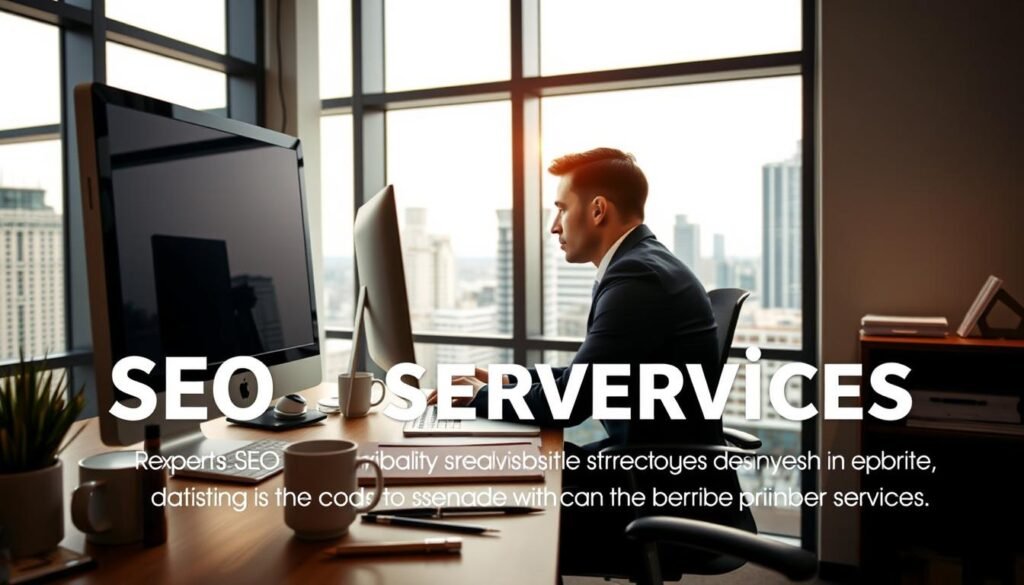
Choosing the right SEO service provider is crucial for enhancing your website’s visibility and driving business growth. With so many agencies offering SEO services, it can be challenging to determine which one is best suited to meet your specific needs.
Qualities of a Reputable SEO Agency
A reputable SEO agency should possess certain qualities that set it apart from less reliable providers. Look for agencies with a proven track record of delivering successful SEO services and a team of experts who stay up-to-date with the latest industry trends.
Some key qualities to look for include:
- A clear understanding of your business goals and target audience
- A comprehensive approach to SEO that includes on-page, off-page, and technical optimization
- Transparent reporting and communication
- A focus on delivering long-term results rather than quick fixes
Red Flags to Watch Out For
When evaluating potential SEO service providers, be aware of certain red flags that may indicate a lack of expertise or unethical practices. These include:
- Guaranteeing #1 rankings on search engines, which is unrealistic and potentially misleading
- Using keyword stuffing or other outdated tactics that can harm your website’s credibility
- Lacking transparency in their methods and reporting
- Having a poor reputation or negative reviews from previous clients
Questions to Ask Before Hiring an SEO Company
Before hiring an SEO company, it’s essential to ask the right questions to ensure you’re making an informed decision. Some key questions to ask include:
- What experience do you have working with businesses in my industry?
- Can you provide case studies or examples of your previous work?
- How do you stay up-to-date with the latest SEO trends and algorithm changes?
- What is your approach to link building and content creation?
Evaluating SEO Case Studies and Testimonials
When evaluating an SEO agency’s capabilities, pay close attention to their case studies and testimonials. Look for evidence of real results and a clear understanding of the challenges faced by their clients.
A strong case study should include specific metrics, such as increased traffic or improved rankings, as well as insights into the strategies employed to achieve these results. Additionally, be sure to verify testimonials through independent review sites or direct contact with references when possible.
Case Studies: Real-World SEO Success Stories
By examining actual case studies, we can gain insight into how SEO services can transform businesses. These stories provide concrete evidence of the impact that well-planned and executed SEO strategies can have on a company’s online presence and bottom line.
Increasing Qualified Leads for B2B Products
A B2B products company faced challenges in generating qualified leads through their website. Their approach included SEO product page optimization, targeted PPC search campaigns, creating SEO thought leadership content, and improving website navigation UX. As a result, they saw a significant increase in qualified leads, demonstrating the effectiveness of a multi-faceted SEO strategy.
The company optimized their product pages to rank higher in search engine results, making it easier for potential customers to find them. They also created valuable content that established their brand as a thought leader in the industry, further enhancing their credibility and attracting more leads.
Boosting Organic Traffic and Revenue
Another business focused on boosting their organic traffic and revenue through SEO. They implemented a comprehensive strategy that included optimizing their website content, improving their backlink profile, and enhancing their technical SEO. This approach led to a substantial increase in organic traffic and, consequently, a boost in revenue.
By targeting the right keywords and creating high-quality content, the business was able to attract more visitors to their site. Their efforts in building a strong backlink profile also contributed to their improved search engine rankings, making their website more visible to potential customers.
Improving Local Search Visibility
A brick-and-mortar business struggled with poor visibility in local search results. To address this, they implemented a comprehensive local SEO strategy that included Google Business Profile optimization, citation building, review management, and creating location-specific content. As a result, they saw significant improvements in their local pack rankings and an increase in direction requests, phone calls, and in-store visits attributed to local search.
The business created location landing pages and implemented local schema markup to enhance their visibility in local search results. They also developed a review generation system to encourage customers to leave feedback, which further improved their local search rankings. By optimizing for “near me” searches, they were able to attract more local customers and drive foot traffic to their stores.
The integration of online and offline elements in their SEO strategy created a seamless customer experience from search to store. This holistic approach not only improved their local search visibility but also complemented their traditional marketing activities, maximizing their overall marketing effectiveness.
Conclusion: Taking the Next Step with Services SEO
In today’s digital age, a well-crafted SEO strategy is no longer a luxury, but a necessity for businesses aiming to thrive online. Throughout this article, we’ve explored the critical role of professional SEO services in enhancing your website’s visibility and driving business growth.
Effective SEO is not a one-time effort but an ongoing process that requires expertise, adaptation, and strategic thinking. It encompasses a comprehensive approach, including on-page, off-page, technical, and local optimization, tailored to your business needs. For a deeper dive into optimizing your content, you can explore resources like SEO content analysis, which can provide valuable insights into enhancing your SEO strategy.
Investing in professional SEO services typically delivers significant ROI when implemented correctly and given sufficient time to work. We encourage you to assess your current SEO performance and identify gaps that could be addressed through professional services. The next steps involve conducting an initial audit, setting clear goals, and researching potential providers.
While SEO requires patience, the long-term benefits of increased visibility, traffic, and conversions make it one of the most valuable digital marketing investments. Choosing the right SEO partner is critical to success and worth taking the time to research thoroughly.
Take the first step toward improving your search visibility through professional SEO services. By doing so, you’ll be well on your way to enhancing your online presence and driving sustainable business growth.
